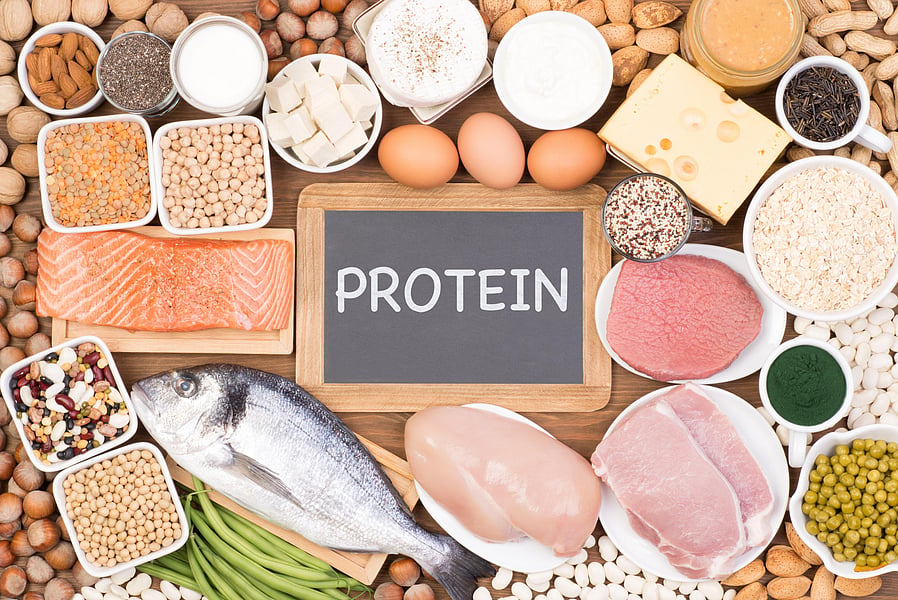Protein Intake Tied to Quality of Diet for Weight Loss

TUESDAY, July 19, 2022 (HealthDay News) -- Individuals who self-select a higher-protein diet during calorie restriction may improve their diet in other ways, too, compared with those with lower protein intake, according to a study published in the July issue of Obesity.
Anna R. Ogilvie, from Rutgers University in New Brunswick, New Jersey, and colleagues examined how the change in self-selected protein intake during caloric restriction (CR) alters diet quality and lean body mass. The analysis included 207 adults with overweight or obesity, who were examined before and during six months of CR (approximately 10 food records/person).
The researchers found that participants (mean age, 54 years) lost 5.0 percent of weight. Protein intake was 79 g/day in the high-protein group and 58 g/day in the low-protein group. There was less lean body mass loss noted in the high-protein group versus the low-protein group (−0.6 versus −1.2 percent). Compared with the low-protein group, the Healthy Eating Index score was increased in the high-protein group, and this finding was attributed to greater total protein and green vegetable intake and lower intake of refined grain and added sugar.
"Counseling for weight management that recognizes that there is a wide potential range of protein intake that is interconnected to other food choices may improve the quality of advice to patients," the authors write.
Related Posts
Tree Rings Show Hurricanes Becoming Wetter, Longer, More Dangerous
WEDNESDAY, Oct. 6, 2021 (HealthDay News) -- The rings of stately pines on the...
Tying the Knot Could Keep High Blood Sugar at Bay
WEDNESDAY, Feb. 8, 2023 (HealthDay News) -- Getting hitched could help...
‘Ultra-Processed’ Foods Up Odds for a Second Heart Attack or Stroke
WEDNESDAY, Dec. 1, 2021 (HealthDay News) -- If you've had a heart attack or...
Attorneys General Warn About Cannabis Products That Look Like Halloween Treats
FRIDAY, Oct. 29, 2021 (HealthDay News) -- Just days before Halloween, attorneys...
